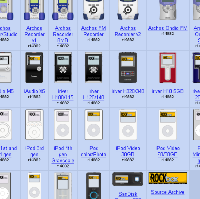In the Rockbox project we’ve been using a rather sophisticated build system for many years that provide updated binary packages to the public after every single commit. We also provide daily built zips, manuals, fonts and other extras directly off the subversion server fully automatic every day.

I used to be in the camp that thought that this is a very good system to the extent that it makes ordinary version-numbered releases somewhat unnecessary since everyone can easily get recent downloads whenever they want anyway. We also had a general problem getting a release done.
But as you all know by now, we shipped Rockbox 3.0 the other day. And man did it hit the news!
lifehacker.com, gizmodo.com, engadget.com, slashdot.org, golum.de, boingboing.net, reddit.com and others helped us really put our web server to a crawl. The 4 days following the release, we got roughly 160,000 more visits on our site than usual, 5 times the normal amount (200,000 visits compared to the “normal” 40,000).
Of course, as a pure open source project with no company or money involved anywhere, we don’t exactly need new users but we of course want more developers and hopefully we do reach out to a few new potential contributors when we become known to a larger amount of people.
So I’m now officially convinced: doing this release was a good thing!


 Back in October 2007 I wrote about the first stumbling attempts to get
Back in October 2007 I wrote about the first stumbling attempts to get